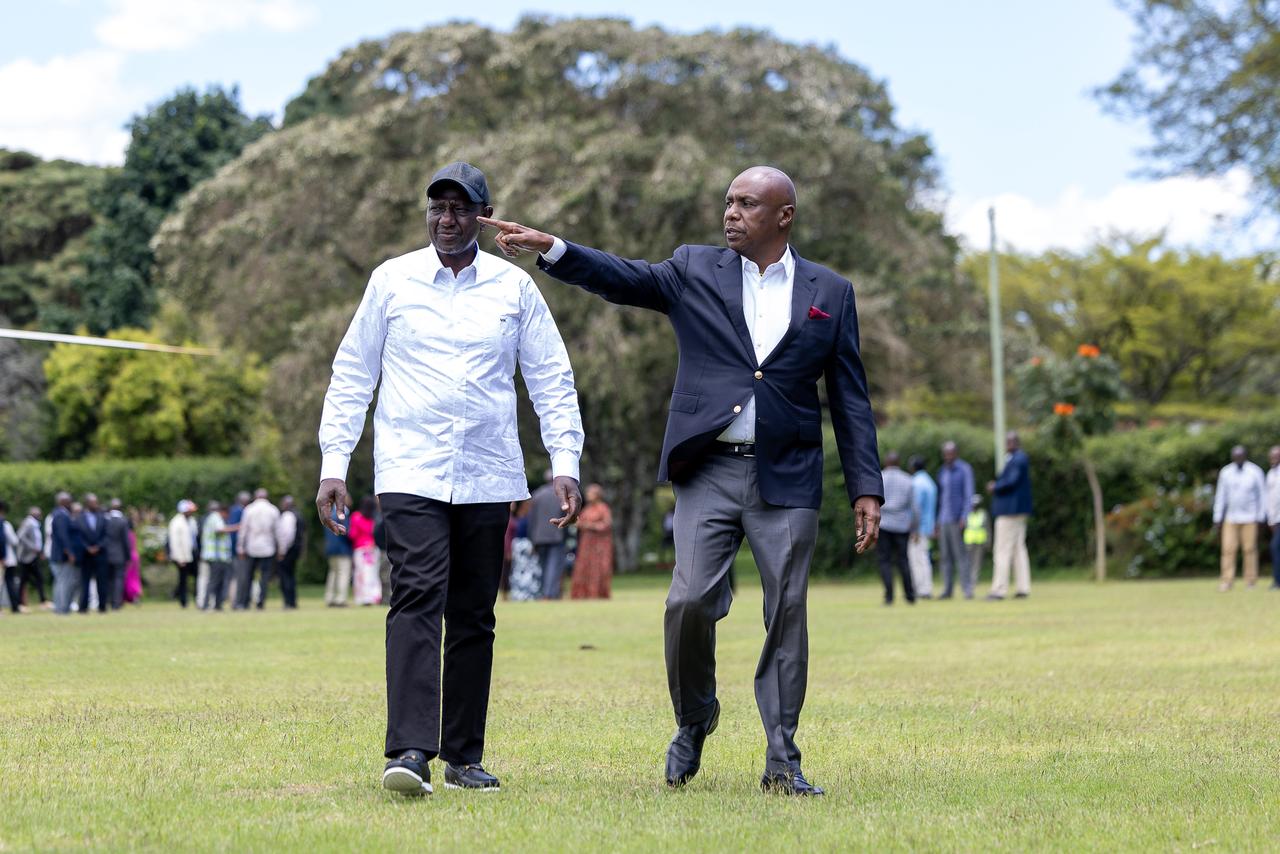News
From Power’s Shadow to Ruto’s Ally: The Unfolding Political Journey of Gideon Moi

For decades, the name Moi has carried immense weight in Kenya’s political corridors. Gideon Kipsielei Towett Moi, the youngest son of the late President Daniel arap Moi, has lived under that shadow, rising, stumbling, and recently reviving his political path in a country still shaped by his father’s legacy.
Gideon is the National Chairman of the independence party KANU. Born on October 22, 1963, he was raised within one of Kenya’s most powerful families. His childhood revolved around the disciplined order of Kabarak, where his father, then President, instilled values of loyalty and caution. After early schooling in Kenya, Gideon pursued higher education in the United Kingdom, graduating from the University of Salford with a degree in Business Studies.
Despite his privileged upbringing, Gideon grew up reserved, his demeanor polished but quiet. Those close to him describe him as calm, calculated, and deeply loyal to the Moi brand. His marriage to Zahra Moi and their three children—Kimoi, Kigen, and Lulu—have remained largely away from public glare, maintaining the family’s preference for privacy.
Away from politics, Gideon is a businessman with interests in energy, agriculture, media, and ranching. He is linked to Sosian Energy, among other ventures associated with the Moi family empire, and is an avid polo player often seen at elite matches in Nairobi and Nakuru.
Gideon’s political journey began in earnest in the early 2000s when he succeeded his father as Member of Parliament for Baringo Central. In 2002, he carried the KANU flag during one of the most difficult periods for the independence party, then struggling after President Moi’s retirement. Though his initial stint ended in defeat in 2007, Gideon returned to reclaim his footing a few years later.
In 2012, he formally took over as Chairman of the Kenya African National Union (KANU), succeeding then Deputy Prime Minister Uhuru Kenyatta, who was heading off to form The National Alliance (TNA). Under Gideon’s stewardship, KANU sought to rebuild itself, albeit as a minor player in Kenya’s evolving political landscape.
His biggest comeback came in 2013, when he was elected Senator for Baringo County, a seat he defended successfully in 2017. However, the 2022 General Election proved a political setback when the late William Cheptumo of UDA unseated him, ending a decade-long senatorial reign.
Gideon’s relationship with President William Ruto has been one of Kenya’s most watched political dramas. Once fierce rivals in the Rift Valley, their rivalry symbolized the struggle for control of the Kalenjin vote after Moi’s era. Gideon stood in opposition to Ruto’s political rise, backing President Uhuru Kenyatta and later aligning with the Azimio coalition under Raila Odinga in the 2022 elections.
Yet, in a surprising twist two days ago, Gideon appeared to soften his stance. After a private meeting with President Ruto at State House, Gideon abruptly withdrew from the Baringo senatorial by-election, telling reporters cryptically: “The President knows why I never made it to the ballot.” He followed up by hosting the President at Kabarak farm yesterday (Friday).
The statement sparked intense speculation about a political truce, or perhaps a strategic recalibration. Observers believe Gideon’s move signals a calculated return to relevance through reconciliation rather than confrontation.
Today, Gideon Moi stands at a crossroads between legacy and reinvention. As the last political heir of the Moi dynasty still active in national politics, he carries both the burden and the opportunity of a name that once defined Kenya’s political order. Whether he rebuilds KANU into a national force or aligns permanently with Ruto’s administration, one thing is clear: the Moi name still commands attention, and Gideon’s story is far from over.
Kenya Insights allows guest blogging, if you want to be published on Kenya’s most authoritative and accurate blog, have an expose, news TIPS, story angles, human interest stories, drop us an email on [email protected] or via Telegram
-

 Grapevine2 weeks ago
Grapevine2 weeks agoRussian Man’s Secret Sex Recordings Ignite Fury as Questions Mount Over Consent and Easy Pick-Ups in Nairobi
-

 News7 days ago
News7 days agoTHE FIRM IN THE DOCK: How Kaplan and Stratton Became the Most Scrutinised Law Firm in Kenya
-

 Investigations1 week ago
Investigations1 week agoMulti-Million Dollar Fraud: Three Kenyans Face US Extradition in Massive Cybercrime Conspiracy
-

 Economy1 week ago
Economy1 week agoIran Demands Arrest, Prosecution Of Kenya’s Cup of Joe Director Director Over Sh2.6 Billion Tea Fraud
-

 Business1 week ago
Business1 week agoA Farm in Kenya’s Rift Valley Ignites a National Reckoning With Israeli Investment
-

 Africa2 weeks ago
Africa2 weeks agoFBI Investigates Congresswoman Ilhan Omar’s Husband’s Sh3.8 Billion Businesses in Kenya, Somalia and Dubai
-

 Grapevine3 days ago
Grapevine3 days agoA UN Director Based in Nairobi Was Deep in an Intimate Friendship With Epstein — He Even Sent Her a Sex Toy
-

 Politics2 weeks ago
Politics2 weeks agoSifuna, Babu Owino Are Uhuru’s Project, Orengo Is Opportunist, Inconsequential in Kenyan Politics, Miguna Says
















